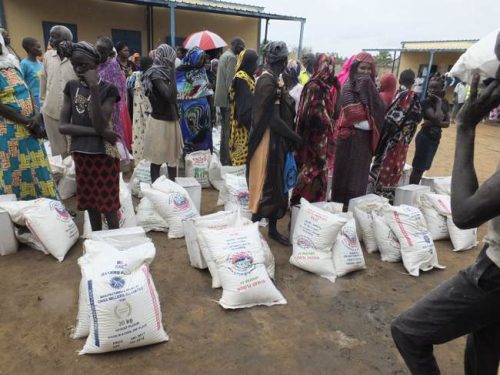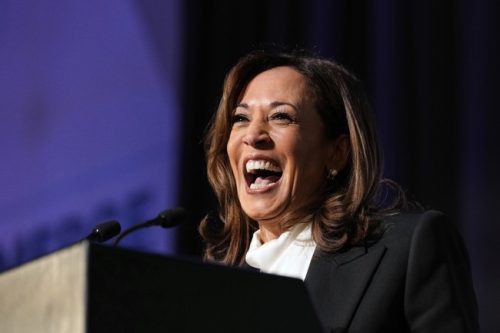The Trump administration announced a major naval operation in the Eastern Pacific that killed 14 narco-terrorists across three strikes on four vessels, with one survivor and no U.S. casualties, and officials say the action is part of a wider campaign against drug-trafficking groups designated as terrorist organizations. Secretary of War Pete Hegseth framed the strikes as a direct defense of American lives, arguing the drug networks have cost more U.S. lives than many foreign terrorist groups. The move has been presented as lawful, carried out in international waters, and consistent with a declared non-international armed conflict with designated traffickers.
Secretary Hegseth publicly described the operation as the largest single takedown of a drug-trafficking vessel to date, involving three separate strikes and four boats operating along known narco-trafficking routes. He emphasized that intelligence tracked the vessels and that U.S. forces were not harmed during the operation. Officials reported one survivor from the attacks, and they counted 14 enemy fighters killed in the engagement.
“Yesterday, at the direction of President Trump, the Department of War carried out three lethal kinetic strikes on four vessels operated by Designated Terrorist Organizations (DTO) trafficking narcotics in the Eastern Pacific. The four vessels were known by our intelligence apparatus, transiting along known narco-trafficking routes, and carrying narcotics,” he wrote on X. “Eight male narco-terrorists were aboard the vessels during the first strike. Four male narco-terrorists were aboard the vessel during the second strike. Three male narco-terrorists were aboard the vessel during the third strike.
“A total of 14 narco-terrorists were killed during the three strikes, with one survivor. All strikes were in international waters with no U.S. forces harmed.”
Hegseth framed the action as a change in posture after years of focusing overseas, saying the Department will now prioritize defending the American homeland from drug-trafficking organizations. He argued these networks are not just smugglers but terror networks whose narcotics have killed Americans at alarming rates. The department’s language and legal approach follow its recent notification to Congress that the fight qualifies as a non-international armed conflict.
Yesterday, at the direction of President Trump, the Department of War carried out three lethal kinetic strikes on four vessels operated by Designated Terrorist Organizations (DTO) trafficking narcotics in the Eastern Pacific.
The four vessels were known by our intelligence… pic.twitter.com/UhoFlZ3jPG
— Secretary of War Pete Hegseth (@SecWar) October 28, 2025
“The Department has spent over TWO DECADES defending other homelands. Now, we’re defending our own. These narco-terrorists have killed more Americans than Al-Qaeda, and they will be treated the same. We will track them, we will network them, and then, we will hunt and kill them.” That statement underlines a shift toward aggressive, intelligence-driven action against cartels operating like foreign terrorist organizations.
The administration reports that U.S. strikes to date have killed 57 narco-terrorists in a broader campaign to disrupt shipments and leadership. Officials stress that the operations targeted vessels on established trafficking routes in international waters, relying on classified intelligence and maritime surveillance. Supporters say this reduces the flow of deadly fentanyl and other narcotics that are fueling an overdose crisis at home.
From a Republican perspective, decisive military action against narcotics networks is a straightforward protection-of-citizens argument: these groups threaten American lives and should be treated as hostile organizations when they operate as transnational terror proxies. Enforcement critics caution about escalation and sovereignty, but the administration insists the strikes were lawful, narrowly targeted, and tied to a clear national security threat. The White House and the Department of War contend that enforcement at sea is a legitimate tool when tied to a declared conflict and recognized designations.
Legal and policy observers will watch how Congress and allied nations respond to the administration’s framing of drug cartels as part of an armed conflict, and whether other countries will follow the U.S. lead in treating narco-terror networks as foreign terrorist organizations. The administration says it notified lawmakers in advance that it considers the drug fight a non-international armed conflict, signaling a desire to keep legal and oversight channels engaged. Lawmakers on both sides will likely debate the scope of authorities and the proper balance of oversight and operational secrecy.
Operationally, the strikes reflect a blend of maritime interdiction, intelligence linkage, and kinetic action aimed at leaders and runners rather than indiscriminate targeting. Officials describe continued patrols and tracking as essential to choke off supply lines and to prevent these DTOs from exploiting open sea lanes. The Department emphasizes strict rules of engagement to avoid harm to U.S. forces and to limit collateral damage while pursuing designated threats.
Editor’s Note: The Schumer Shutdown is here. Rather than put the American people first, Chuck Schumer and the radical Democrats forced a government shutdown for healthcare for illegals. They own this. Republicans say the contrast between decisive national security action and fiscal dysfunction in Washington highlights competing priorities and the need for leadership that defends citizens first.






